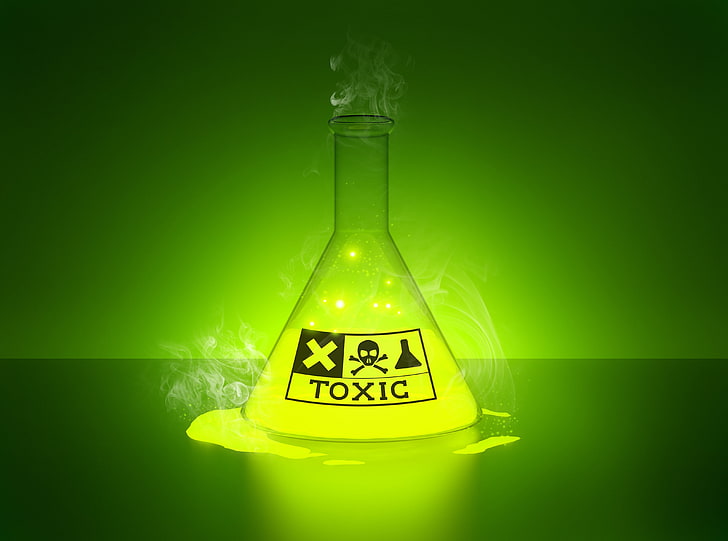Relationships are unequivocally intricate constructs, often charged with emotions that can skew our judgments or lead us down corrosive paths. In a world marked by heightened individualism and rapid social change, many people find themselves entrenched in toxic relationships, yet fail to realize the insidious nature of their emotional entanglements. Within the framework of the Bahá’í teachings, there exists profound wisdom that can illuminate the intricacies of human relationships and offer a fresh perspective on the toxicity that may pervade our relational spheres. This exploration endeavors to unpack the nuances of such relationships and to encourage a critical re-evaluation that aligns with the principles of unity, love, and justice inherent in the Bahá’í Faith.
At the core of Bahá’í teachings lies the principle of the Oneness of Humanity. This concept asserts that all individuals, regardless of race, gender, or socioeconomic status, are interconnected and deserving of respect and dignity. Toxic relationships often emerge when one party feels superior or entitled over another, fostering an imbalance of power that leads to manipulation and harm. By embracing the doctrine of unity, individuals can begin to dismantle the toxic dynamics that may be present in their relationships, fostering equitable connections characterized by mutual respect and empathy.
Beyond the Oneness of Humanity, the Bahá’í teachings emphasize the centrality of love and compassion in human interactions. Love transcends mere sentiment; it is an active force that compels individuals to act in the best interests of one another. Toxic relationships may mask themselves with ephemeral displays of affection or superficial charm, yet they often lack the genuine compassion that the Bahá’í Faith extols. In recognizing the difference, individuals can cultivate deeper, more meaningful connections while liberating themselves from those that are inherently unhealthy.
Courageously confronting toxic relationships requires an astute awareness of the signs that indicate deterioration. Manipulation, deceit, chronic criticism, and emotional withdrawal are red flags that shouldn’t be overlooked. The Bahá’í teachings advocate for an approach steeped in honesty and transparency, which is pivotal for nurturing authentic bonds. When one becomes aware of a toxic pattern, it is imperative to address it not only for personal well-being but to uphold the foundational values of justice and equity that the Bahá’í Faith promotes.
The concept of transformation is especially pertinent in the context of re-evaluating toxic relationships. The Bahá’í writings articulate the potential for change inherent in every individual. This extends to relationships as well—the idea that with concerted effort, toxic relationships can evolve into spaces of mutual growth and enlightenment. However, it is essential to recognize that transformation requires the willingness of both parties to engage earnestly in the process. Both individuals must commit to introspection, seek self-awareness, and foster open lines of communication. Yet, it’s crucial to acknowledge that not all relationships can or should be salvaged; sometimes, the pathway to healing will necessitate a clean break.
An integral aspect of the Bahá’í teachings is the acknowledgment of individual agency. Each person’s autonomy must be respected, and toxic relationships frequently infringe upon this fundamental right. By understanding one’s own intrinsic value and inherent worth, one begins the process of reclaiming power over their life and decisions. This realization can lead to considerable personal growth, serving as a catalyst for seeking healthier interactions that align with Bahá’í principles.
Perhaps one of the most compelling insights offered by the Bahá’í perspective is the emphasis on collective well-being. The individual is enmeshed within a larger community, which warrants a consideration of how toxic relationships affect not only those directly involved, but also the broader social fabric. When one engages in a toxic dynamic, it reverberates, influencing friends, families, and communal ties. The Bahá’í teachings implore followers to strive for harmony and to work towards the betterment of society, compelling individuals to break free from detrimental relational patterns that impede collective progress.
Breaking free from the bind of toxic relationships can prove daunting, yet the pursuit of personal and communal transformation is a worthy endeavor. The concept of service in the Bahá’í Faith transforms interpersonal connections into platforms for light and inspiration. When individuals align their relationships with the teachings of Bahá’u’lláh, they enable their interactions to be conduits for service, compassion, and upliftment. A true relationship, as expressed through these teachings, becomes a partnership in service to humanity—ultimately dissolving the toxicity that may have previously characterized it.
Ultimately, while toxic relationships may appear to be subservient to our desires and needs, the Bahá’í teachings provide a framework through which we can comprehensively understand and redefine our interactions. By advocating for love, nurturing respect, and fostering unity, individuals are equipped with the tools to not only recognize toxicity but to strategically remove it from their lives. In so doing, they liberate not only themselves but also contribute to the communal ethos of love and harmony that the Bahá’í teachings espouse. In re-evaluating those toxic relationships, the journey towards emotional, spiritual, and relational enlightenment begins.
